






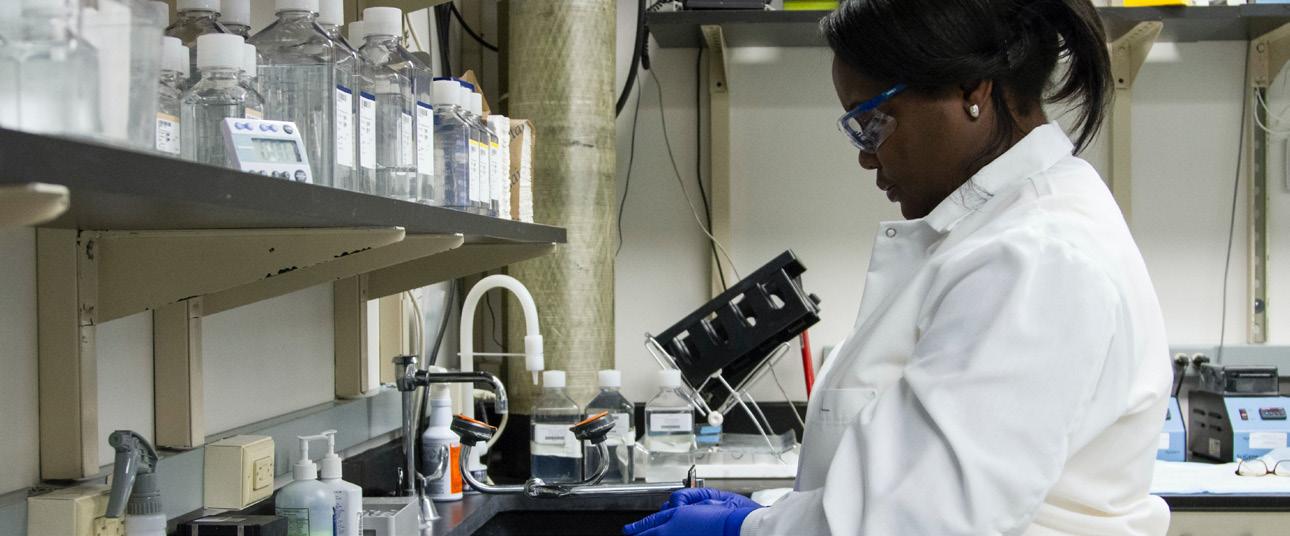
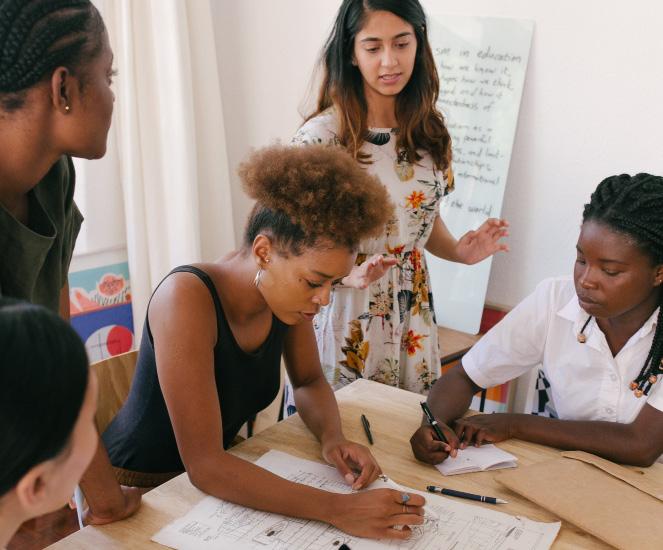




Work experience is time spent in a professional environment, in any sector, learning on the job and picking up new skills and knowledge. It gets you out of the classroom and allows you to get real experience of what a career might look like in your chosen field. It gives you the opportunity to ask questions, to watch professionals working, and to decide what job might be best suited to you.
Choosing the right career in life isn’t necessarily something which comes naturally to students. It can be hard to take knowledge gained in a classroom and understand how that might translate to a possible career in your chosen sector. Work experience placements give you a chance to decipher what your desired role consists of on a daily basis, and allows you to bridge the gap between school and a possible future career.
Work experience can help shape your career and give you valuable insight before you apply to universities, apprenticeships, conservatoires or colleges. Taking on a work experience placement can help you to build your CV, make connections, and impress employers. You can also take valuable skills away from your placement, from basic communication skills through to practical skills in your chosen field.
Placements usually last between 3 and 5 days. Some may be in person, some online, and some might be a combination of both.
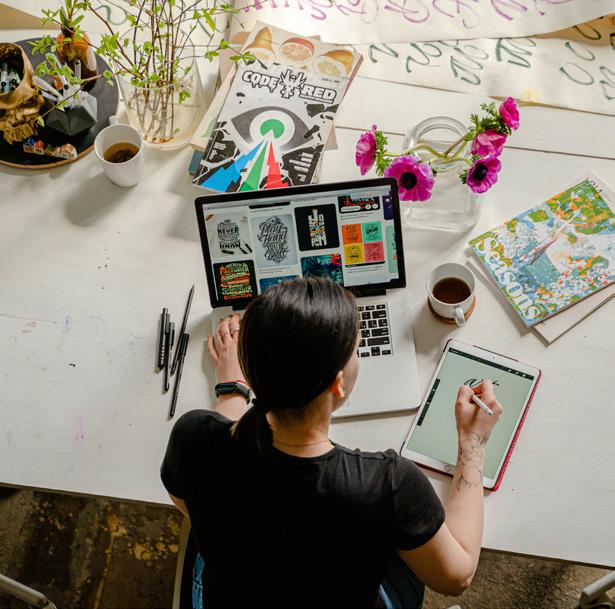

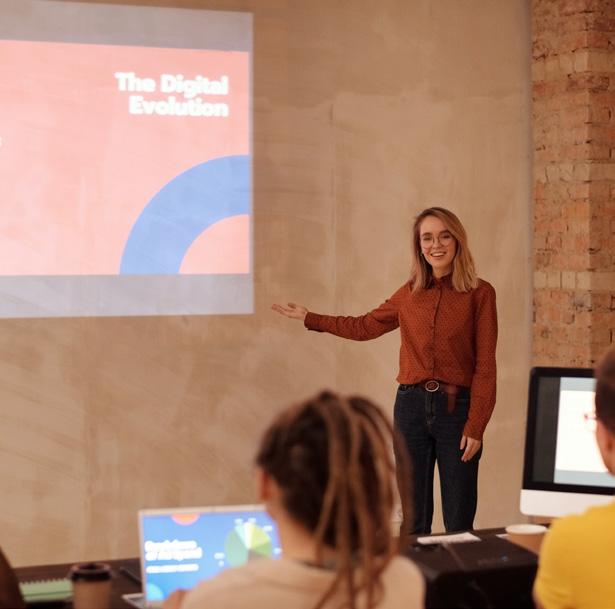
In terms of what you will be doing, well that depends on your chosen career path! We’ve included some information within this booklet on the types of placements you could decide to try out, but don’t think that these are the only options! There are tens of thousands of career options out there, and we are here to support you with finding the right placement for you.
Placements are offered by companies in multiple fields. They can vary in what they offer, but you should expect to spend your placement helping out with things around the business or organisation, watching the professionals at work, and depending on the field, gaining handson experience. What you will be expected to help with will depend on where you are – you won’t be performing heart surgery or constructing new buildings in 5 days, but you can help with the processes which lead up to those things!
Some placements might require you to submit an application as some fields can be particularly competitive when it comes to selecting candidates for work experience, but this is good experience for university and job applications and we will help support you with those applications. Once you have secured a placement, you will be expected to work full days, and to dress and behave in a professional manner.

If you would rather not plan your work experience through us in school, that’s ok too. Some of you may already have connections in a particular industry, you might have friends or family members who can help you secure the perfect placement, or you might want to work with your parents or guardians on finding your own work experience. If this sounds like you, then please let the student guidance team know.
As a general rule, you will still be expected to secure a five-day placement, you will still need to provide us with all the details – the company, their contact information, who will be supervising you during your placement, and what you will be doing while you are there. We will also need details of how you will get there, and in the case of placements further away from school, where you will be staying. We will still expect you to complete a diary for each day of your placement, or a blog post to sum up your experience. These notes/diaries are valuable for you to reflect upon and learn from and for us in helping understand what you gained from your placement.

There are some excellent guidelines available for any architecture firm looking to host work experience students. This means that you can usually expect to have a fulfilling week and take away some valuable skills. Your week will usually start with a tour and an introduction to the company so you can learn more about what they do and meet key members of staff. You will have the chance to explore the work the company does through past, present and future projects and you will sit down with supervising staff to let them know what knowledge you have of design, drawing, making models and using specific design software.
The next part of your placement is often working on a project to help you develop your skills and work alongside professional staff to start from scratch and come up with design ideas, present those ideas and practise different techniques like drawing, modelling, and digital design. This is your opportunity to gain skills and portfolio work which will eventually help you with your university applications.
You will learn how to interpret client briefs, research and develop ideas based on a specific site, understand materials and environmental impact, create and develop working and practical designs and learn presentation skills.

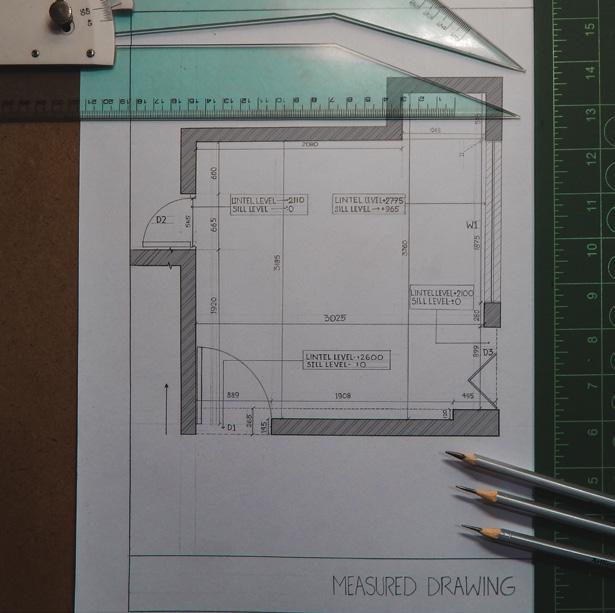

So what do you need to study to be an architect? You will need three A-levels and entry requirements range from CCD to AAB. You will also need GCSE’s at grade C or above in maths and English.
The fantastic thing about architecture is that you don’t necessarily need specific A-levels to get onto the degree course, since architecture isn’t an option in schools. It is always helpful to have studied art and design as you will develop important design skills and learn to interpret the work of others, alongside presentation skills which will come in useful in the future. It will help you build a portfolio of work, and with art A-levels, you have the freedom to choose projects which will best help you develop design skills. Physics and maths can also be beneficial.
It’s also worth having a look at the kind of architecture that is popular at the moment, as well as what was popular at different points in the history of the subject. Start sketching out ideas if you think of designs you like the idea of, and getting used to the technical drawing style used by architects. The more you practise these skills the more you will be comfortable with them and with increased skill, you will get a lot more out of any work experience placement.
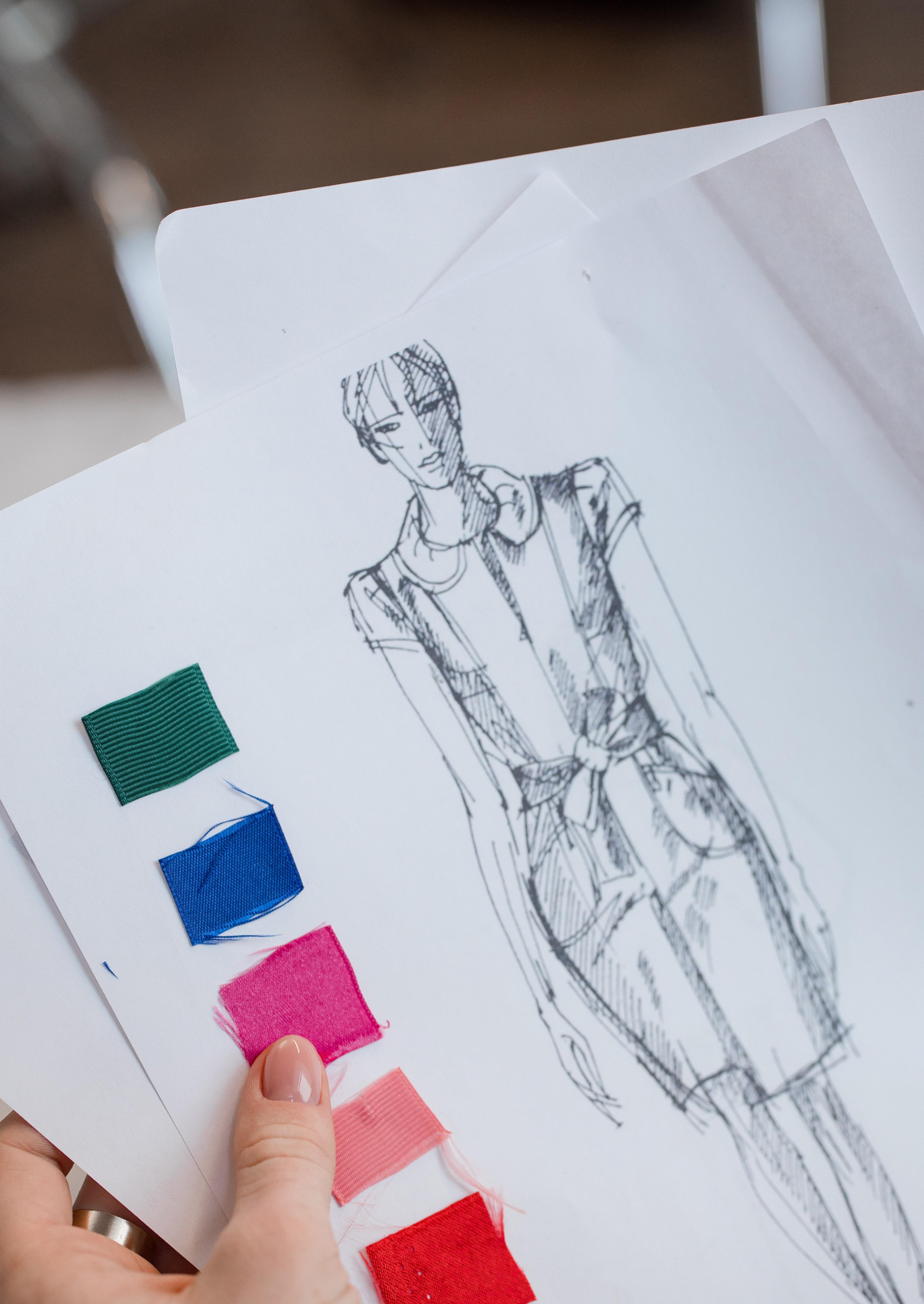
Art and design is such a huge field with so many possibilities it’s impossible to list them all here! In terms of future degree courses or careers, it’s impossible to talk about all of them in this little booklet but here’s a bit of information on the options so you can have a think about whether they might be right for you.
If you are considering a career in art and design, there are a lot of degrees to choose from. You can study art on its own, art and design, fine art, history of art, concept art and illustration, sculpture, games design and art, multidisciplinary art and design, animation, costume interpretation and design, graphic design, commercial illustration, model making and visual FX, production design, photography, textiles, printmaking, digital design, fashion, 3D design, ceramics, jewellery design, art and film… and so many more!
The question is, what sort of work experience could you be doing if you are thinking about a career in one of these fields? Essentially the possibilities are endless!
If you are considering one of the more traditional art careers or have an interest in art history, you could consider working for a week in a studio, gallery or museum. These can be great places to spend time getting to know existing artists, understanding how galleries are curated and how the commercial side of the business works.
You can also apply for work experience at some of the bigger London galleries, for example the National Portrait Gallery offers work experience and volunteering positions, where you can learn about art history by spending a week with the archives team, assisting the curators to clear dedicated spaces for new collections. The VandA also offers work experience placements – imagine spending a week in the world’s largest museum of applied arts, decorative arts and design.
A typical week in a studio, gallery or museum would involve working with the curators or owners to plan exhibitions, helping with admin work, assisting with customer service, learning about the running of a gallery or museum, and putting your art knowledge to the test!
Art is such a varied subject that you will need to have a think about which type of art you are interested in studying. You will need to have studied art at GCSE and A-Level, or for design-related degrees, you should think about taking design and technology at A-Level. Other subjects to consider are photography, fine art or product design. The most important part of applying for any kind of art or design degree is a portfolio. You will need to showcase your work in an interview, and knowing how to curate a beautiful portfolio or work is something you can pick up from a good work experience placement.





The world of business is varied, and as such, so are the types of degrees and careers you can pursue. Universities offer courses like business studies, management studies, finance, accounting, and human resource management, and most will allow you to study business theory, management skills, entrepreneurship, and economics. Many courses in this field also offer a work placement, or the option to spend a year in the middle of your degree in an industry placement to gain further experience before completing your degree.
To be accepted onto a business degree, you will usually need three A-levels at A or B grades. While most degrees don’t have specific subject requirements, maths, business studies, politics, or other similar subjects can be useful and are looked upon favourably.
You will need a strong application to go with those A-levels, and the best way to make your application stand out, is experience. Relevant work experience can demonstrate that you are serious about the subject, and will allow you to better understand the industry. You will be expected to be doing your own independent reading and research around business topics, and it helps to have real experience in the workplace to help guide your research.
A work experience placement in a business can be extremely varied, but will involve you getting to know how the business operates. You will likely be helping with admin, customer service, shadowing senior members of the organisation, and understanding how the different departments work together. You might learn how to interact with people at different levels within the business, how to motivate them, influence them and even manage conflicts.
You will have the opportunity to ask questions, and learn from the experience of those who have been in the industry for a long time – this insight can be extremely valuable when it comes to deciding which area of business you might be interested in working in when the time comes.

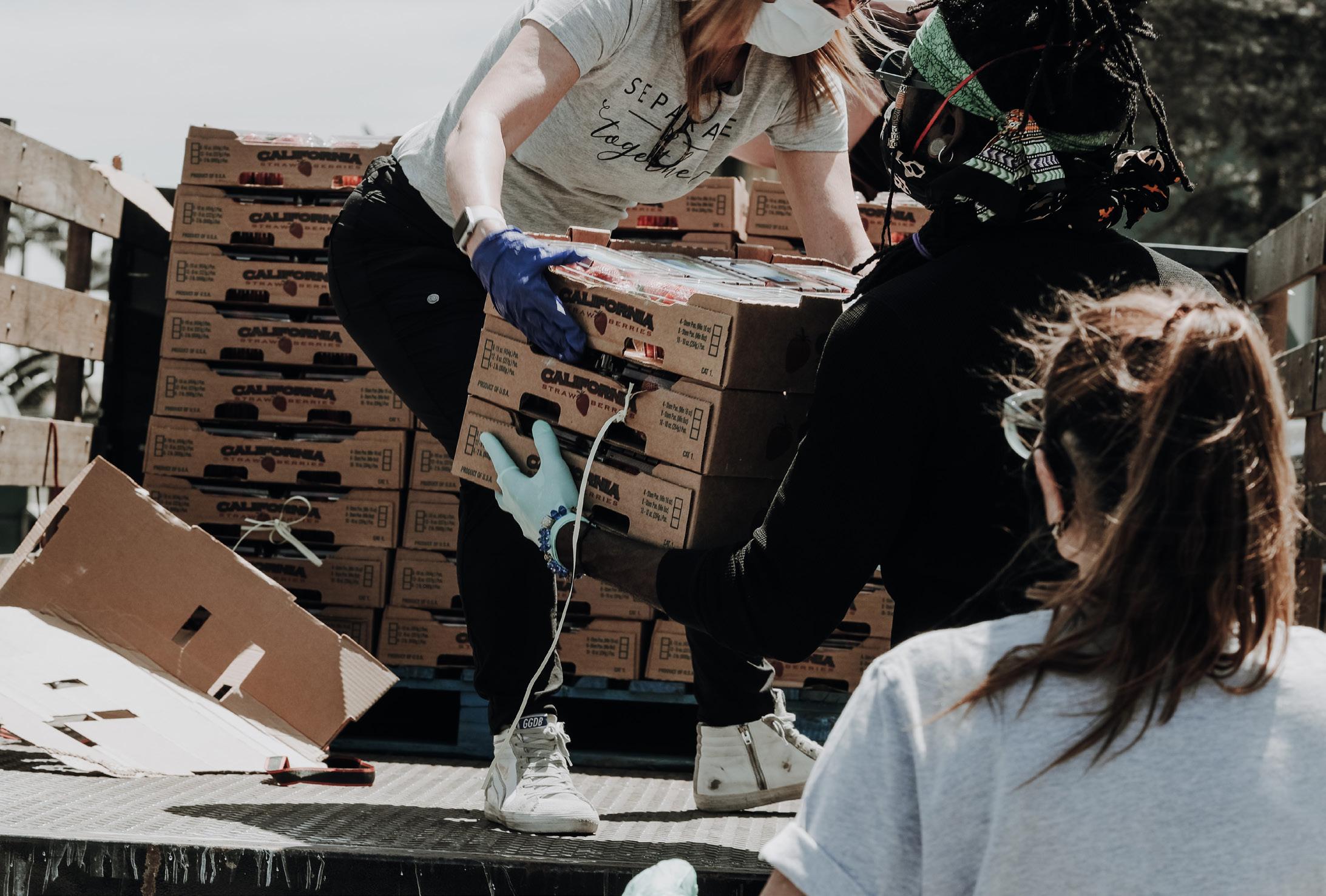
A lot of charities are also professional businesses, and a core part of what they do is research, raising and redistributing funds, and lobbying for causes they support. Work experience in this sector can be more varied than in some others, as you might be needed to work on a specific project that’s happening at the time you are there, so it becomes harder to give an idea of what a typical day might look like. If you have more time to volunteer and would like to do more than a one week work experience placement, then most charities will try and involve you in all aspects of the operations – fundraising, communications, research, marketing, events and administration.
Volunteering within the charities sector is a great way to move into a career with a charity, non-governmental organization (NGO) or the not for profit sector. Most charities will look for volunteering work on your CV when they are hiring, and a lot of people will go back to work for the same charities they volunteered for once they are looking for permanent work. All this means that work experience and volunteering are hugely beneficial for people looking to go in to a career in this field.
So what would you study? Generally people working for charities have an interest in studying something like social science, economics, politics, sociology, human and social geography, or development studies. There are usually no specific A-Levels you’d need, but a lot of courses will look to see that you have taken at least one essay subject. Geography can also be handy for some courses, though it’s rarely a requirement. Generally you will need grades around BBB.
You will need to do some reading though! Wanting to work for a charity or NGO isn’t enough, you will need to have a good knowledge of how charities operate both at home and internationally and the best way to learn this is to volunteer. Spend some time reading about what different charities do and which countries they operate in. Work experience placements are a great way to help broaden your knowledge base considerably in a short period of time, and it’s worth trying to get at least one placement before you apply to university. If you’ve got more time, it’s valuable to try and get some time with a couple of different charities to see how they operate.

Computer science is a branch of IT which focuses on the practical and theoretical study of methods used in programming, design, specification, verification and testing of human-made computing systems. Computer scientists can work on complex computer systems or the programming used to make a fridge freezer work properly and everything in between. Simply put, computer science is the study of how computers can solve problems and make things better and more efficient.
Five days of work experience in a computer science related field may not allow you time to solve the worlds biggest problems (though you can give it a shot!), but it will allow you to shadow professionals in the field. You may be shown how different systems work, help with admin or running reports, attend workshops, or have a chance to practise your coding skills. You will gain confidence in your abilities and learn new skills, and not just computer skills. Most students also come away from placements with improved selfconfidence and people skills.



Computer science is a competitive field, both for university applications and for jobs once you graduate. Building connections within the field and gaining real industry knowledge will help to strengthen your applications and give you a foot in the door.
To study computer science, you will typically need subjects like maths, further maths, physics, biology, chemistry or physics. Entry requirements can vary from BBC to A*A*A* at A-Level. Many graduates of computer science go on to work in software development or programming, with some founding companies or working in software, hardware, the gaming industry, finance, or commerce.
To quote computerscience.org – “…women are greatly underrepresented in computer science fields. Only 20% of computer science professionals are women. Increasing the inclusion of women is a sound business strategy. A study by Deloitte found that women’s choices account for up to 85% of buying decisions nationwide, and that diversity drives innovation.”
The computer science industry is evolving all the time, and it’s time for more women’s voices to be heard. Why not be a part of it?

As with all medical related degrees, dentistry is a demanding profession, and if you are considering this career, a work placement in a dental practice is extremely valuable. This is for a few reasons, but the biggest is to ensure that this really is the route you want to pursue. As a dental student, you can expect to study for at least five years, and you will learn all aspects of dentistry. You will learn how to diagnose, maintain and improve people’s dental health, help them improve their confidence with cosmetic dentistry, learn dental surgery, and of course – all-important people skills.
Entry requirements for dentistry degrees are usually high – with most universities demanding AAA grades at A-level. You will be expected to study chemistry and biology, and most look favourably upon maths or physics as a third subject. Do your research on UCAS if you’ve got a specific university in mind.
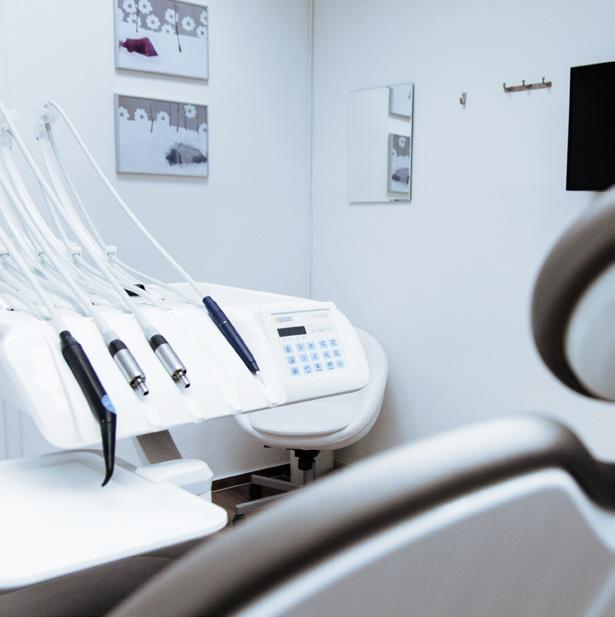
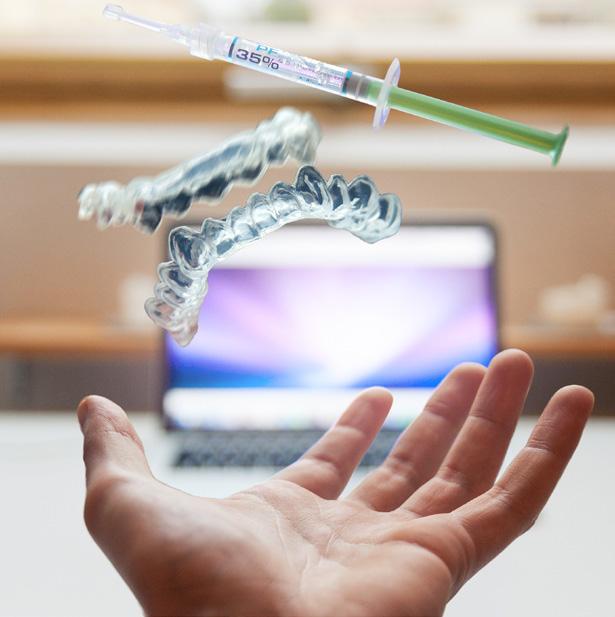
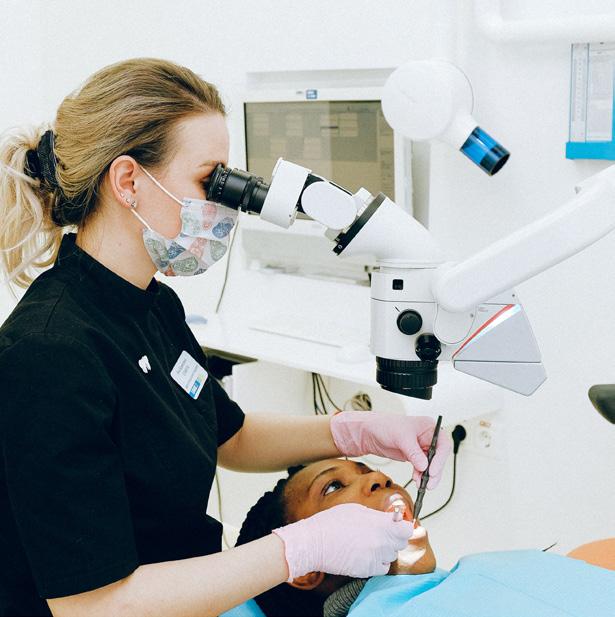
Work experience within a dental practice is fairly standard across most practices, as there are guidelines for the kind of work experience that a practice should offer.
Day one of your placement should include (but won’t be limited to) working in reception to understand the process of registering and receiving patients, learning customer service skills, working alongside the practice manager, shadowing a dentist for their consultations.
Day two should include shadowing a dentist for their morning and shadowing a member of the dental clinical team such as a hygienist or nurse as it’s important to understand all of the roles within the practice. You should also have the opportunity to shadow different dentists throughout the week, so that you can ask questions about the different areas of dentistry that they specialise in.
It’s important that you have time to reflect on your experience and most practices will set aside time for you to ask questions throughout your placement. If you have a special interest in a particular field of dentistry, please let us know and we can help arrange a placement that will allow you to explore that field in more depth. Please remember that work experience is a requirement for your application.
An important thing to remember is that as well as watching procedures, you will get the chance to build connections with the industry during a placement. If it goes well, a letter of recommendation from a work experience placement can be extremely valuable when you are looking for future placements or jobs!
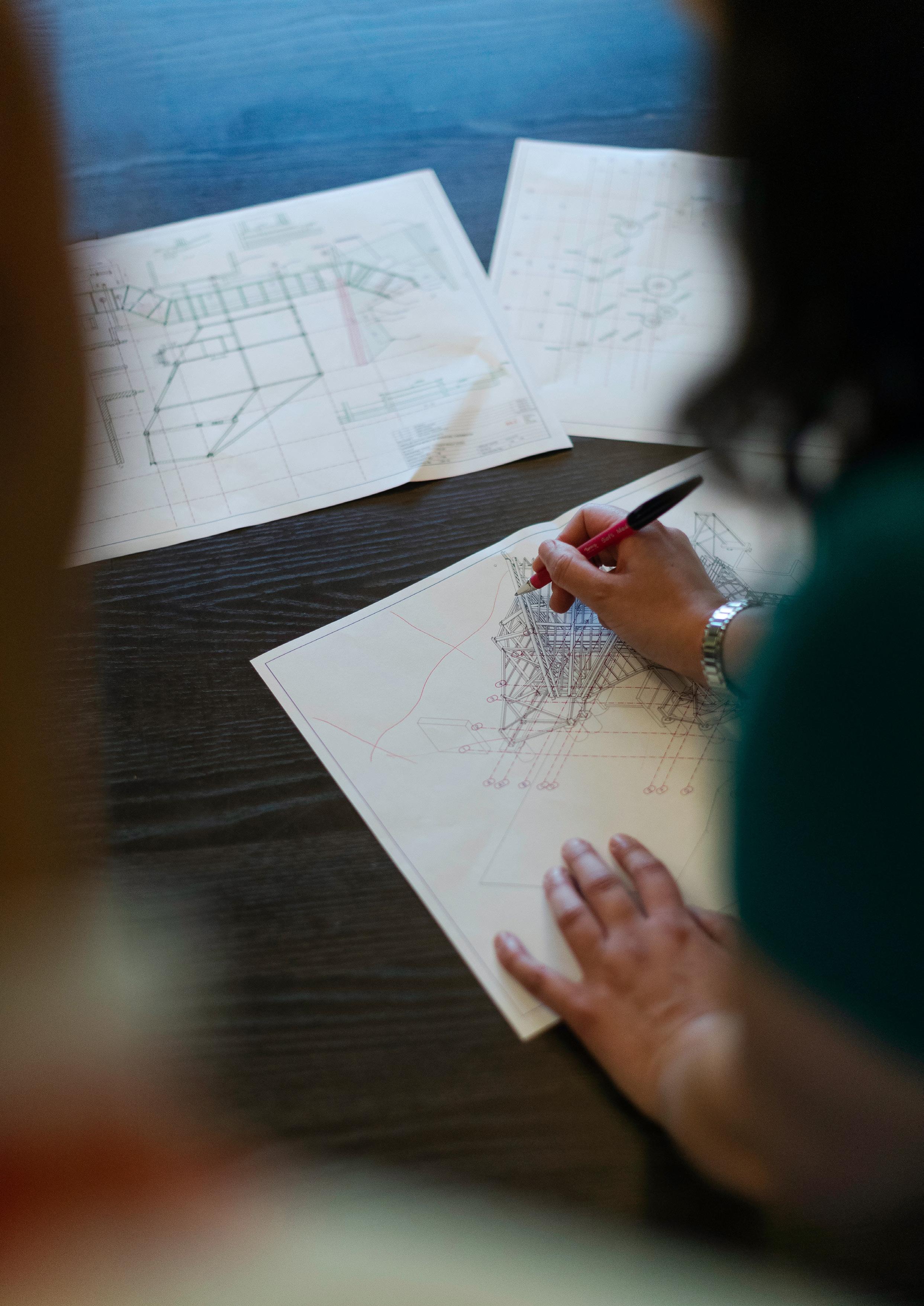
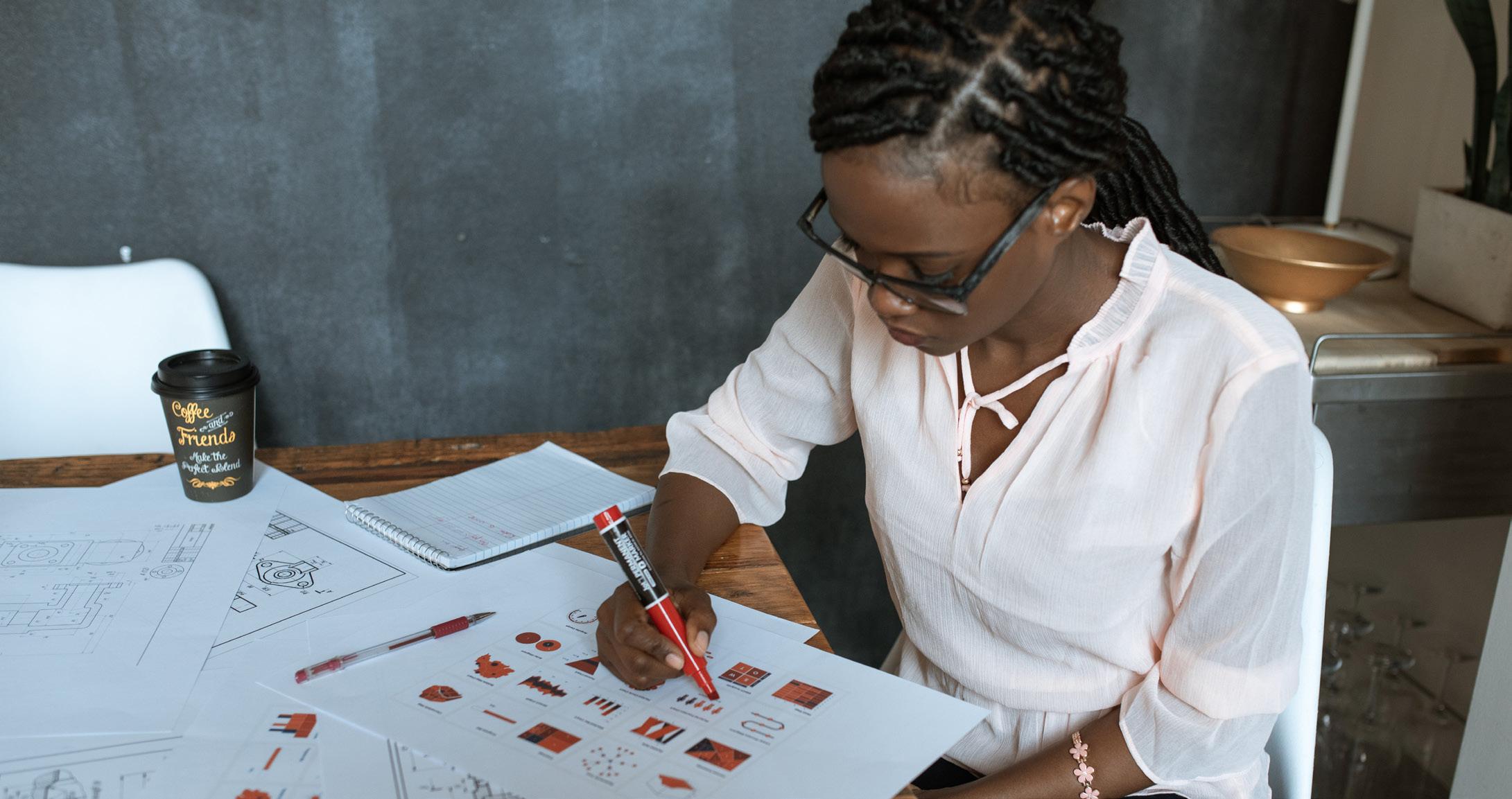
The field of engineering is exciting and varied, and there are many career paths to explore. You will also find there are great opportunities to explore different sides of engineering through work experience placements and taster days at different companies. With most companies, you will have the chance to experience cutting-edge projects, meet different people across different departments of the business, and explore the many career opportunities on offer. Placements usually last for a week.
There are also a number of online work experience courses which you can complete in your own time. These give you a taste of subjects like electronics, computer science, sustainability, aerospace, technology and robotics.
Rolls Royce offer work placements and say - “These five-day placements aim to give you the broadest possible experience. Depending on the placement you are offered, you could potentially spend time in: An office environment, gaining an understanding of our business processes, on the shop floor, shadowing operators and discovering exactly what those particular jobs involve or, looking at things from more of an engineering perspective, looking at how products are designed, and why we manufacture them the way we do.”
Possible degrees include:
• Engineering
• Materials science and engineering
• Aerospace engineering
• Software engineering
• Mechanical engineering
• Civil engineering
Most will require maths and physics, though software engineering requires IT and computing. For science engineering, chemistry is also a useful subject. Course requirements vary, but can be anything from CCC to A*AA.


“THE EVENTS INDUSTRY IS A DYNAMIC, FAST-PACED SECTOR OFFERING OPPORTUNITIES TO WORK ON ANYTHING FROM SMALL STAFF EVENTS AND FESTIVALS TO WEDDINGS AND CHARITY FUNDRAISERS”
The events industry is an exciting one! From large scale festivals, arena concerts, corporate events, product launches, to conferences and weddings, this industry is one of the best when it comes to variety. A work experience placement within the events industry can help you discover the different types of roles available, and learn more about the management and operations as well as responsibilities that come with a large-scale event. You will get the chance to look at the economics of running events, as well as promotion, customer service, and understanding critical timelines. No two days in this industry are ever the same, and it can be fast-paced and busy, needing a lot of multi-tasking skills.
Because the industry is very hands-on, skills learned in the field are absolutely vital, and not just for jobs, but for university applications too. Placements might have you working alongside different teams to communicate with clients, or help with design choices, but equally you could be helping work out the costs associated with running an event, from the drinks down to the staff required.
Alongside a strong work experience placement, it always helps if you can show willingness to help organise events within school, whether that is by helping out with school clubs, after school activities, or helping plan things like newsletters. All planning skills are good skills when it comes to working in events! Work experience within the hospitality industry or hotels can also be a huge advantage for a career within the events industry, as familiarity with venues, customer service skills and communication skills, are all valuable.
While there are no strict entry requirements for a degree in events management or hospitality, creative and essay based subjects are looked upon favourably, as is business studies.


If you are a creative and adaptable person with a great eye for detail and a passion for storytelling via media, then the creative industry, film and media might be a great fit for you. It’s a multi-billion-dollar industry, and it’s still growing. With people consuming media at a faster rate than ever before, this dynamic industry is a great place to work.
You might go down the path of film, photography or cinematics – all offer the options to gain practical experience and study the theory behind these careers. Photography will focus on the production of still images. You will learn about the different types of cameras, the best techniques for editing and presenting your images, and about how to shoot in the best light or conditions to capture the perfect shot. Film degrees focus on the film industry and motion pictures. Cinematics is somewhere in the middle of these two! Degrees in these fields are varied and exciting: you will move from the classroom to location-based shoots which can be miles from where you are studying.
Studying English language or literature, media studies, photography or art, are all A-levels which will stand you in good stead for an application to a media or film degree. Entry requirements range from CDD to BBB.
Work experience in film and media companies can vary quite widely depending on the type of media the company produces. It also depends what kind of film or media you are interested in! There are many large and small film production companies in the UK, along with studios which focus on documentaries and factual storytelling.
You can also gain work experience by shadowing a working photographer, or assisting as a runner on a film set. There are so many options to choose from, and there are lots of things to consider! From the BBC to National Geographic and beyond, there are plenty of ways to gain experience and add to your university applications through spending time in the industry. You can always get started on your own portfolio too - consider that smaller projects which you have worked on independently show that you are passionate about the field. A varied portfolio also shows you are adaptable and creative, useful skills for a career in this industry.


Finance is an exciting and challenging field to work in. Large companies and banks are keen to offer work experience placements to students looking to study finance, and these placements are a great opportunity to make connections with potential future employers.
HSBC are one of the world’s leading banks, and they offer a great work experience programme. “Supported by experienced managers, you will be shadowing colleagues and encouraged to ask questions to help you understand more about HSBC. During the work experience, you will learn what it is like to work in one of our retail, commercial, operational or head office areas (subject to availability). You will get to know HSBC – our values, our history and exactly what we do – and gain an insight into actual jobs that you would be doing if you came to work for us full-time. There will be an opportunity to develop your skills and grow your confidence.”
J.P. Morgan also offer financial placements – “Under the guidance of a mentor, you will spend time in one of our businesses as well as enjoy structured courses on practical skills such as resume writing, interview techniques and presentations. We will help you determine if a career in financial services is right for you.”
There are also a number of banks which offer online work experience placements, or hybrid placements, with some days in person and some online, taking courses and watching presentations to better understand the career options available to you and the pathways to reach your goals.
Entry requirements for a degree in finance range from CCC to AAA, with most Russell Group universities asking for BBB. You will need to study maths, and sometimes an A-level like economics can also help prepare you for your degree, as most finance degrees will see you learning about business as well. Be prepared to learn more about data analysis, business systems, problem-solving and research too – developing any of those skills as part of a work experience placement can be extremely valuable and can help strengthen your application.

Law is a competitive field, and typically, students who study law are competitive by nature. A work experience placement in a law firm can give you valuable insight into the types of law you may one day be able to practise, as well as helping you build connections and giving you the opportunity to ask questions – lawyers like asking questions!
Law degrees can also lead to jobs as solicitors, barristers and judges. There are also 24 different types of law you can practise, so it’s an extremely varied industry, and work experience can help you narrow down the kind of law you are interested in.
So how do you know if law is the right fit for you?
• Are you interested in justice and legal processes?
• Do you want to make a difference to people’s lives?
• Do you see yourself making a difference in the world around you?
• Do you like to argue your case and present a well-researched argument?
• Do you have great attention to detail?
• Are you a logical thinker who considers all sides of the story?
• Do you enjoy working to deadlines?
If you answered yes to a few of these, then perhaps law is something you should consider. Work experience or a visit to a magistrates or crown court can help you figure out if it’s the right career path for you before you commit to university applications.



To study law you will generally need A-levels between BCC – AAA, depending on the university. It can help to study English, another language or a humanities subject at A-Level. Subjects like PE, art, photography and other creative A-levels are often not accepted as one of the three main subjects. Universities usually offer both LLB degrees (that provide the skills and knowledge required to practise law), and BA/BSc degrees that focus on law as an academic subject. Law degrees are often studied in combination with business, management, criminology, accounting, or a modern foreign language.
Typically a work experience placement in a law firm will allow you to shadow a lawyer or legal professional, help with admin and research, sometimes you will have the opportunity to help prepare an argument for a mock trial, or come up with a legal strategy to help win a case. You will learn communication skills, time management, customer service, and networking skills which will help you progress your future career.
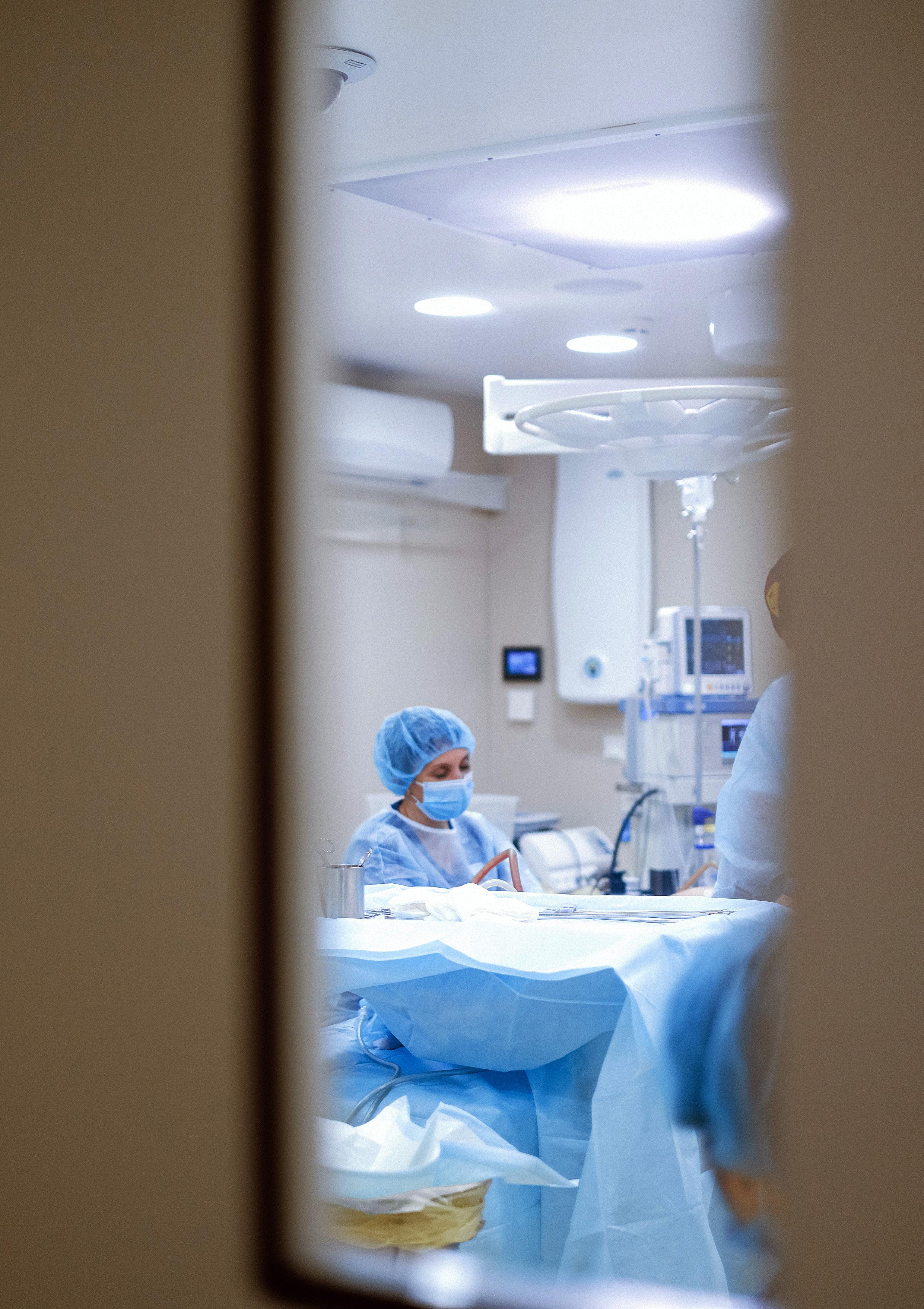

So you are considering a medical career! That’s really exciting, but the options can be daunting too! Let’s start off with the basics.
Most medical degrees are five or six years in duration, and have strict entry requirements. Before we go into the details, it’s worth stating from the start that work experience is mandatory for almost all medical degrees, so come and chat to us about placement options soon – we will want to find the best option for your placement. It is really important to volunteer over the course of 12 months to create a competitive application. Now let’s look at some options! Medical degrees don’t just mean a degree in medicine, though that is an option.
You can also study things like:
• Medicine and health studies
• Dentistry (we have a separate section on this!)
• Clinical medicine
• Biomedical science, anatomy, physiology and pathology
• Pharmacology
• Nutrition
• Optometry
• Nursing
• Medical technology
When it comes to work experience, some universities have a minimum amount of time you will need to have completed before they will consider your application. You will need to have spent time shadowing medical professionals, and usually in your chosen field of medicine. Luckily, the NHS offers work experience placements, but you will need to be over the age of 16 for work
Universities offer qualifications ranging from BSc degrees, through to MB degrees (medicine), and BDS degrees (dentistry). You will need to study chemistry, biology and physics at A-level. Some courses will accept maths rather than physics as a third subject so it’s important to look at different universities and what they require. You can find more information about this on the UCAS website.
Most universities will require AAA, some A*A*A, so you will also need to be confident in your grades to be able to study medicine.

“...LET ME CONGRATULATE YOU ON THE CHOICE OF CALLING WHICH OFFERS A COMBINATION OF INTELLECTUAL AND MORAL INTERESTS FOUND IN NO OTHER PROFESSION.”
― SIR WILLIAM OLSER
Pharmacology degrees generally require A level chemistry and normally one other subject from biology, physics or maths. Other medical degrees (i.e. physiotherapy, radiology, speech therapy and nursing) will usually require at least one science at A-level, sometimes two.
With the highest number of applications per place for all medicine and dentistry courses, you will not only need to meet the academic requirements, but you will need a strong personal statement which demonstrates not only interest, but research and work experience too. You will be interviewed for almost all courses, and most universities also use selection tests too – you will likely be expected to take either the University Clinical Aptitude Test (UCAT) or the BioMedical Admissions Test (BMAT).
This can all feel intimidating, but don’t let it put you off! Depending on the exact degree you want to study, there are around 45 universities which offer degrees in the medical field, so you have a lot of options when it comes to choosing where to apply.
Let’s have a look at what you might be doing in a medical work experience placement.
Placements can be in hospitals, medical clinics, doctors’ surgeries, and usually involve some admin work, a lot of shadowing, and the opportunity to ask a lot of questions! You will need to be flexible and adaptable, as you might be shadowing multiple staff on any given day. You will be observing procedures in different areas of medicine, and will be spending a lot of time watching the interactions between doctors and patients. This can be a great opportunity for you to pick up tips for patient care and will help you understand the kind of patients which you may eventually be working with.
You do need to keep in mind that the patients are the priority, and you will be expected to watch and learn a lot of the time, rather than ‘doing’ – a lot of your day will be on your feet and observing. You will likely find that a placement within a hospital will be much busier and more hectic than perhaps a doctors’ surgery would be. Some previous work experience candidates have said that they felt more able to stop and ask questions between patients within a quieter surgery environment.
Learning how a hospital or surgery operates behind the scenes can also be as valuable as watching medical procedures. As with any business, knowing how to keep things running and having an understanding of how the many roles all work together to make magic happen is a valuable insight to take away with you. Understanding paperwork and filing might seem dull, and less interesting than procedures, but it’s vital to understand and acknowledge that any medical career will involve a fair amount of reading, training, research, paperwork and filing.
Other areas of medicine like radiography might see you spending your week shadowing a doctor and learning about tools used for diagnosis like using x-rays, MRI machines, or ultrasound. If you have a particular interest in midwifery, you will spend your time shadowing appointments (usually routine ones) and understanding both prenatal and postnatal care, and how to build relationships with patients, as well as how to use ultrasounds to check on the progress of a pregnancy. If you are more interested in nursing, then placements can be more diverse, as there are a number of nursing roles available outside of hospitals, and you might spend more time in clinics or doctors’ surgeries shadowing nurses who work more closely with the local community.
The possibilities are almost endless, and there are lots of things to consider. The most important thing is that we get you into a placement so you can start building up experience in your chosen field!
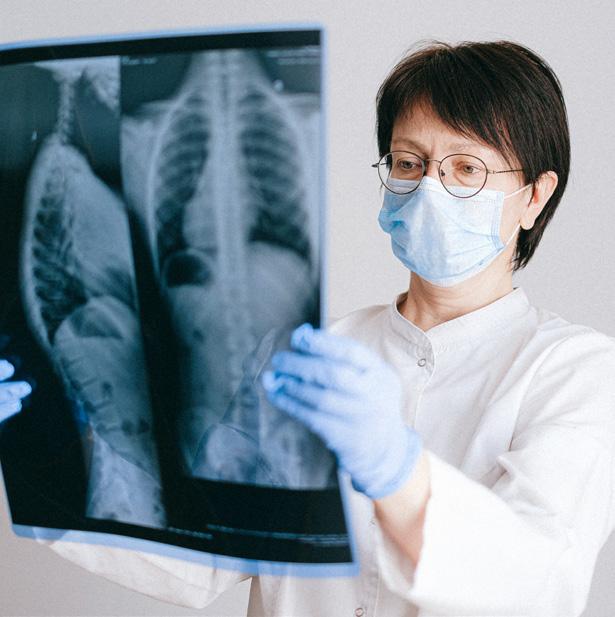
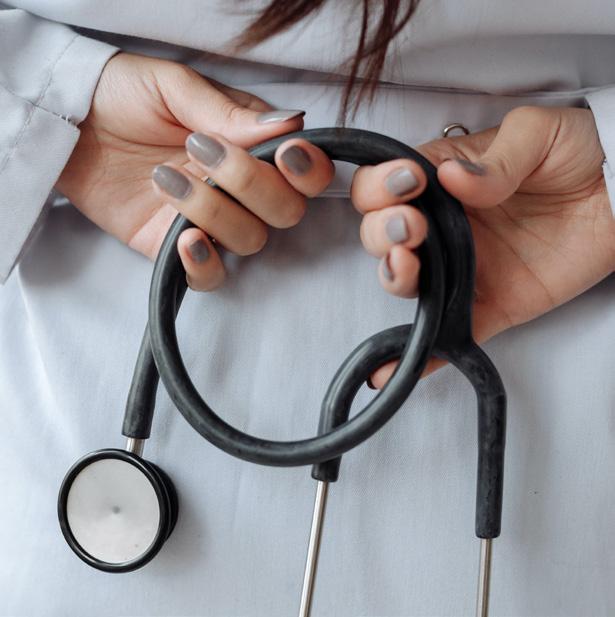
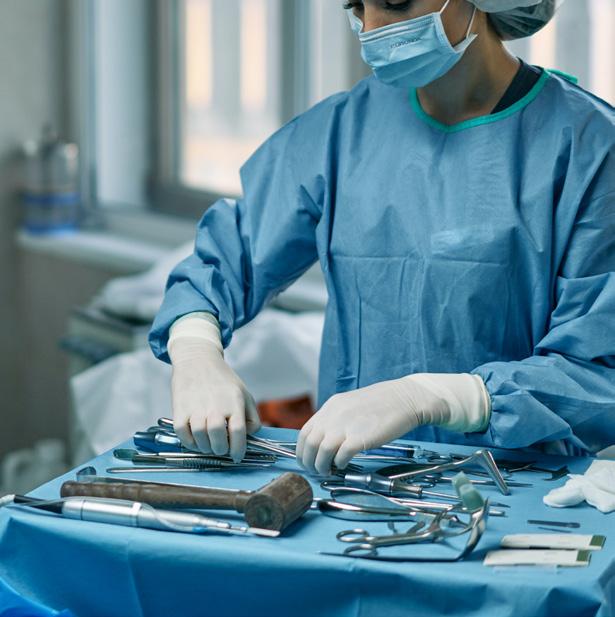

Music is a varied and exciting career option for those who are passionate about the subject. Generally those who study music go down one of three routes. A university degree in music will allow you to study music theory, analysis, psychology of performance, and performances themselves. Studying at a music college will allow you to focus on specific disciplines like music technology or music production. Conservatoires are specialist establishments which offer performance-based music degrees with a strong focus on you as a performer; they offer a lot of one-on-one tuition in your first study instrument, and a lot of work playing with ensembles or orchestras.
Depending on which area of music you are interested in, there are a number of possible work experience options. Obviously it is easier to find placements for those interested in the music industry sectors of production or music technology, as performance-based placements don’t really exist! If you have an interest in a conservatoire-based degree and plan to be a performer, you’d be looking at a placement working in a school teaching music to younger students. Unfortunately most orchestras don’t take on school students for just a week.
To study music at a university, you will need at least five GCSEs, evidence of previously studying an instrument, music at A-level, and a strong interest in the subject. For conservatoires you will be applying as a performer, so only two A-levels are needed and generally the grade requirements are very low. You will need to be successful at audition though! Auditions can be tough – you will be performing for multiple staff and be asked to prepare many pieces of varying styles. You will be expected to play at a very high standard and be confident in your performance. You will also need to perform for the instrumental teachers at your chosen conservatoire and take consultation lessons with them, as one of them must choose to take you on to offer you lessons in your instrument.



“WE LIVE IN A VERY CHAOTIC WORLD THAT SOMETIMES IT JUST SEEMS LIKE A MESS. ONE OF THE REASONS WHY WE LISTEN TO MUSIC, AND TO GREAT CLASSICAL MUSIC IN PARTICULAR, IS THAT EVERYTHING IS IN AN ORDER AND IN A PLACE, AND HAS A BEAUTY THAT YOU SEE IN NATURE... AND THAT PEOPLE LOOK FOR WHEN THEY LOOK FOR GOD.”
- JOSHUA BELL

“IT TAKES 20 YEARS TO BUILD A REPUTATION AND FIVE MINUTES TO RUIN IT. IF YOU THINK ABOUT THAT, YOU WILL DO THINGS DIFFERENTLY.”
- WARREN BUFFET
Marketing and PR is a varied and exciting area of study, and a great career option for anyone who likes a challenge and likes to understand what makes people tick! With a degree in marketing or public relations, you will have the opportunity to apply for roles in most of the other industries we’ve listed here – every business needs promotion and marketing, and PR professionals hold the key to successful communication with consumers. Most people in these fields are both creative and analytical, and take pride in their understanding of what drives people to make the choices they make every day. At its core, marketing is about promoting the value of something or a service, to someone who might need this service or item. You will learn to understand psychology, sociology, and politics, skills that allow you to recognise what people need and when. Creative thinking along with great communication skills come in handy for these sorts of careers.
The range of companies who need PR and marketing professionals is huge, so that means a lot of opportunities for work experience placements! Have a think about the kind of industries which you might want to work in eventually, and we can help you find the right placement! You might be working with an online company helping promote online sales through digital marketing, you could be helping a small business understand their sales patterns, or you could be working with an enormous company like Apple to help develop promotional materials for their next big product launch. The possibilities are endless!
Subjects like English, history, languages and politics are always a good idea for A-levels. While there are not usually strict application requirements, these subjects will be looked upon favourably. The key to a university application in these areas will be a strong personal statement and professional experience in the industry alongside customer service experience in any field, will stand you in good stead for demonstrating your soft skills.

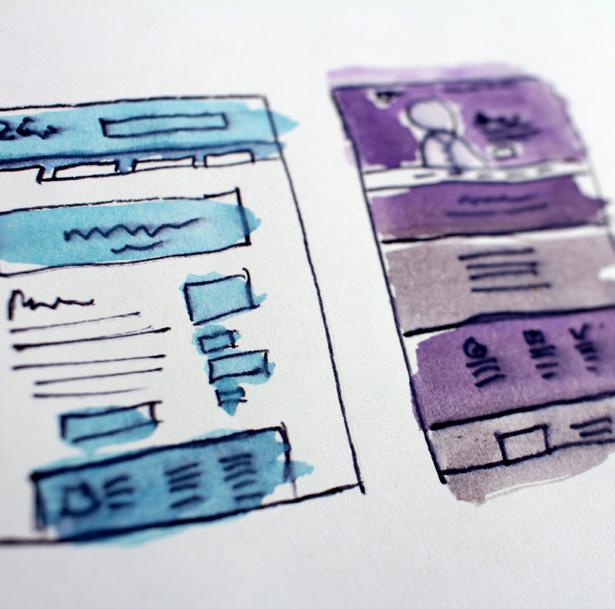

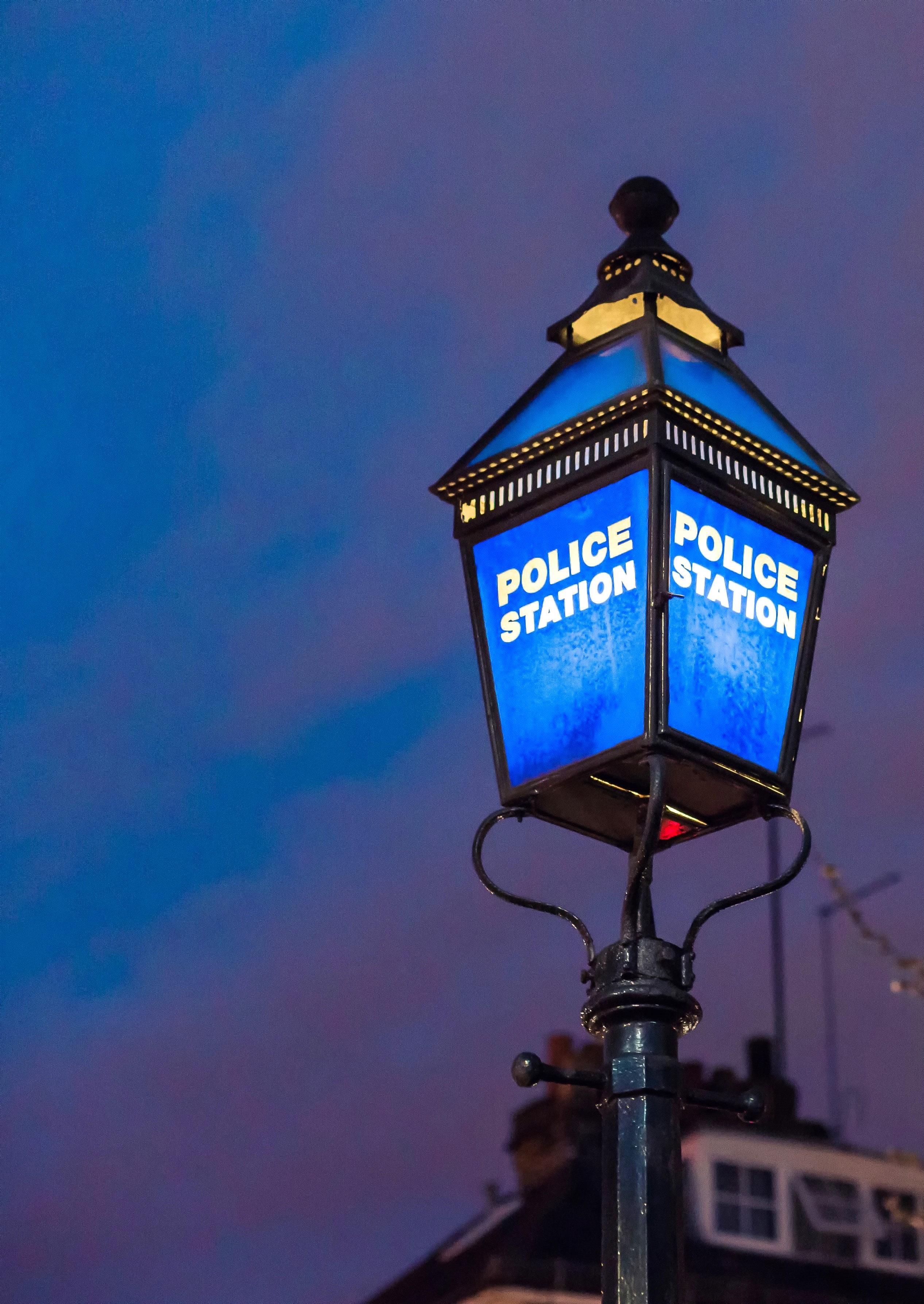
Public services refers to the following fields:
• National and local government
• Armed forces
• Police and prison officers
• Probation officers
• Fire fighters
• Property, housing and estate managers
• Welfare managers
• Waste disposal and environmental services
• Social workers and welfare professionals
We can’t talk about all of these possible career options, though we would be happy to discuss them with you further if any of these are fields you are interested in.

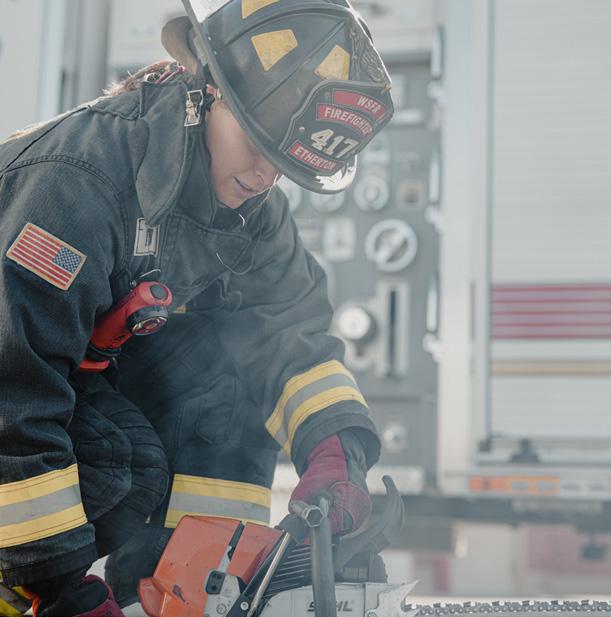
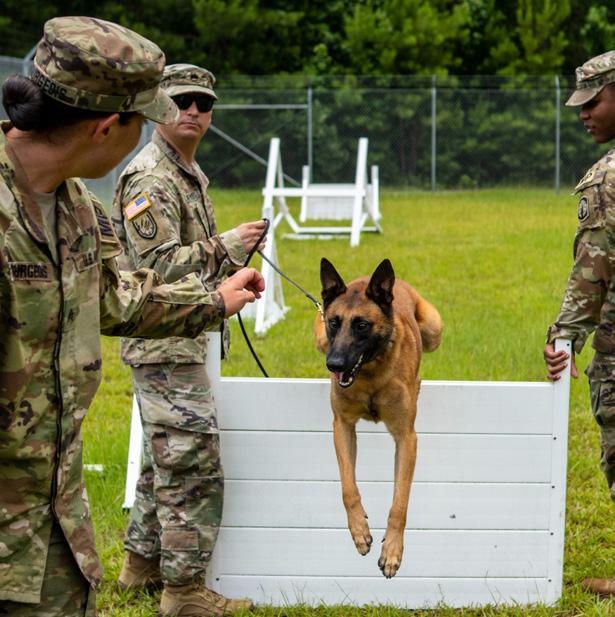
Some of these are areas that it would be trickier to gain work experience in. For example, you might want to work with emergency services but it would be tricky to have you shadow firefighters for safety reasons. It would also be extremely difficult to set you up to work in a prison for a week. However, it doesn’t mean that it’s impossible to find work experience which would be relevant.
If you are hoping to work in the police force, or work within the prison system, you could do work experience with youth groups which run programs for at risk youth, local charities who support people who frequently access help from branches of public services or you could work with a local council or government organisation. You could also look at spending some time in a government call centre, learning more about local government services and how they respond to the needs of people in the community.
If you are considering a career with the armed forces, then we can look at work experience or training placements with local Army cadet groups, aimed at teenagers.
You also have to consider how many skills from a more general work experience placement could be transferrable – people skills, time management and working as part of a team are all valuable traits which you could take away from a placement. If any of these careers sound like ones you’d like to explore, please come and chat to us about the possible options.
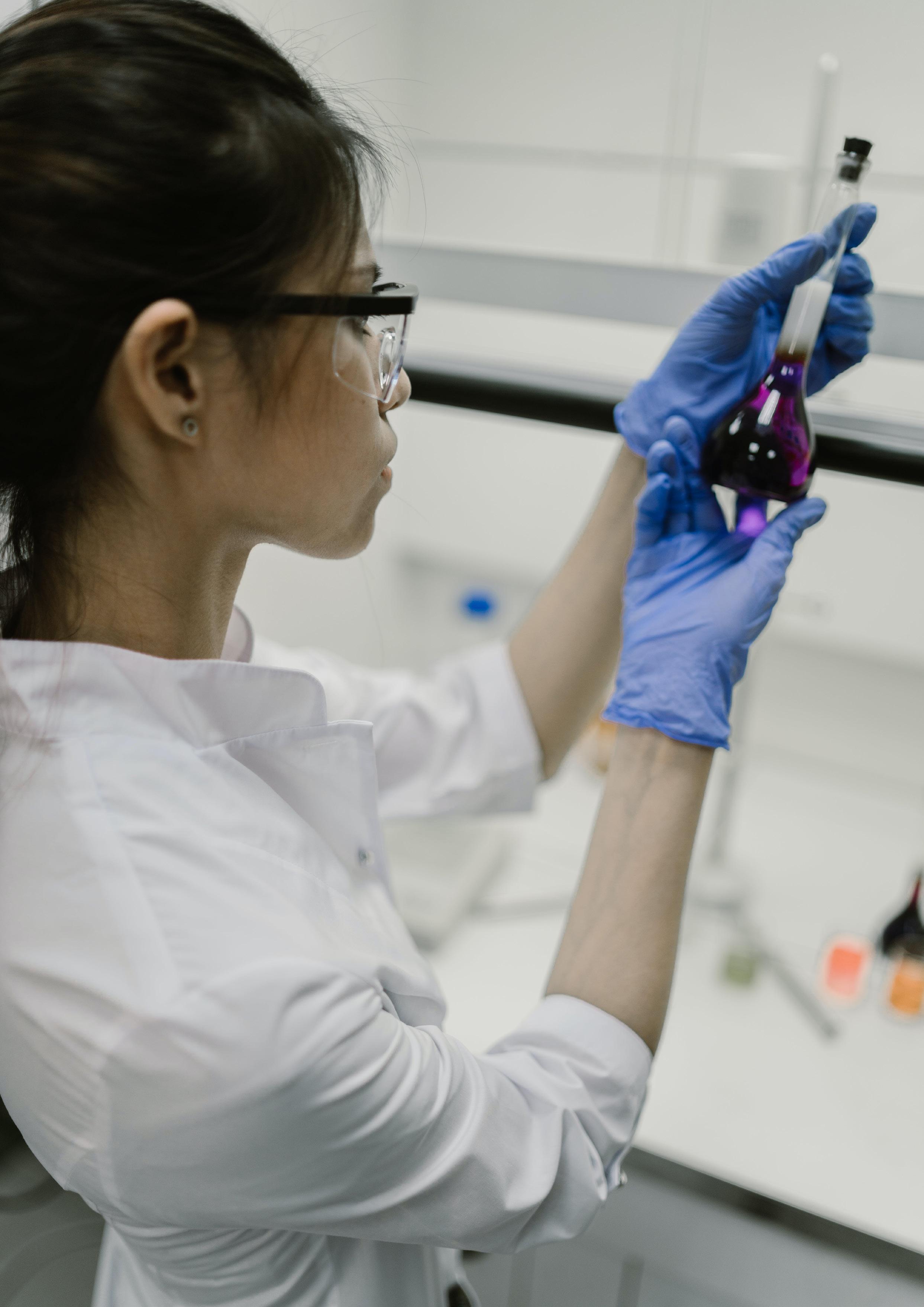
You might be thinking about studying chemistry, molecular biology, biophysics, biochemistry, pharmacology, toxicology, pharmacy, physics, or any number of other related degrees.
You may be interested in fighting new diseases as they are discovered, finding a cure for cancer, making sure existing medicines remain effective, or you may be interested in manufacturing, environmental science or forensics. Whatever your chosen field, you will find that science opens a lot of doors into varied and exciting career paths.
Obviously, you will need to study science to get a place on any of these degree courses. Usually biology and chemistry are a good place to start, with physics and maths also needed for some courses. Entry requirements range from BCC to AAA.
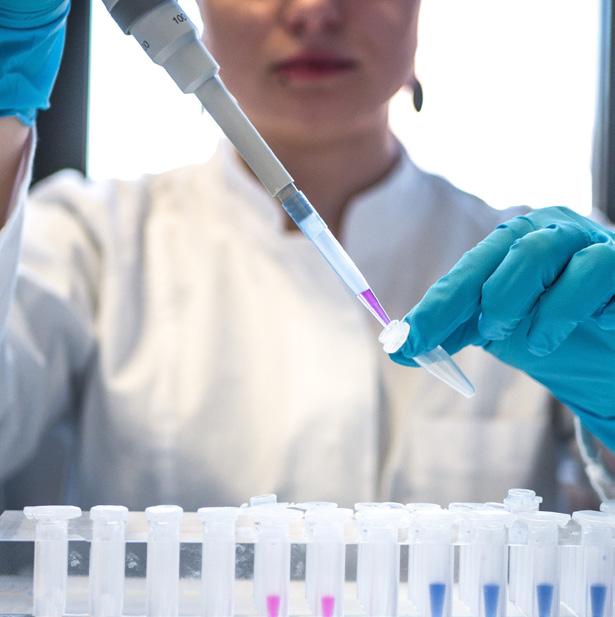
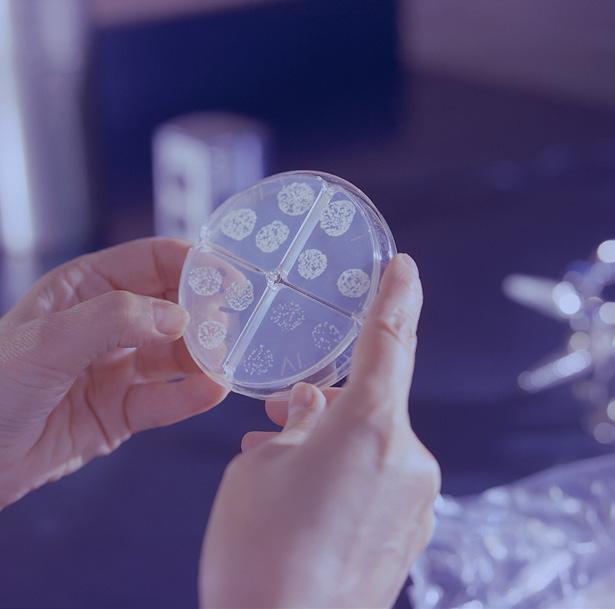

It can be difficult to find work experience placements in science labs – mostly because you have to go through a lot of training to be able to work in a lab and it’s not practical for labs to spend the time training you for such short placements. You also generally have to be over 16 for most companies offering science-based placements.
This doesn’t mean you can’t get a placement that would offer you some insight to the industry though. You may have someone within your network of friends or family who can assist with a placement, or we may be able to reach out to the St. Swithun’s network of alumni to help you secure work experience. While you might not be able to work in the lab of a company, you may be able to work in a different area of the same company – perhaps helping with admin, or a different branch of the company. It might not be exactly what you want to do as a career, but it can help you gain a broader understanding of the companies you might end up working for, and help you make connections in the industry.
Some universities also offer work experience placements as well as one or two day experiences which include hands-on workshops, lectures and lab tours. For biology-related work experience it’s worth considering science museums, wildlife conservation organisations, pharmaceutical companies and vets’ practices, as all can offer the opportunities to shadow with staff and ask questions about the ways biology is used within their industry. For chemistry, consider that medical placements with the NHS can also be useful, and while you may not be allowed in the lab, understanding what the lab technicians do can be hugely beneficial.
There are also a number of online work experience courses which can help expand your knowledge of the industry.

Whether you are interested in studying sports science, performance or psychology, there are a huge number of roles available to those with an interest in sport and the sports industry. There is more demand than ever for higher level expertise within the sectors of performance analysis, business management and hands-on participation. Universities and colleges will be looking for evidence you are passionate about the sports industry, and things like playing sports competitively, coaching, volunteering and people skills will all look good on your application.
A great way to gain some experience is by joining a sports club, or helping out with sports activities in school. Perhaps you could set up coaching for younger students, or help the sports and PE staff with weekend fixtures. You can also gain some of these same skills from a good work experience placement. Consider that the industry is varied and not just between sports, but between coaching, management, psychology, photography… there are just so many options!
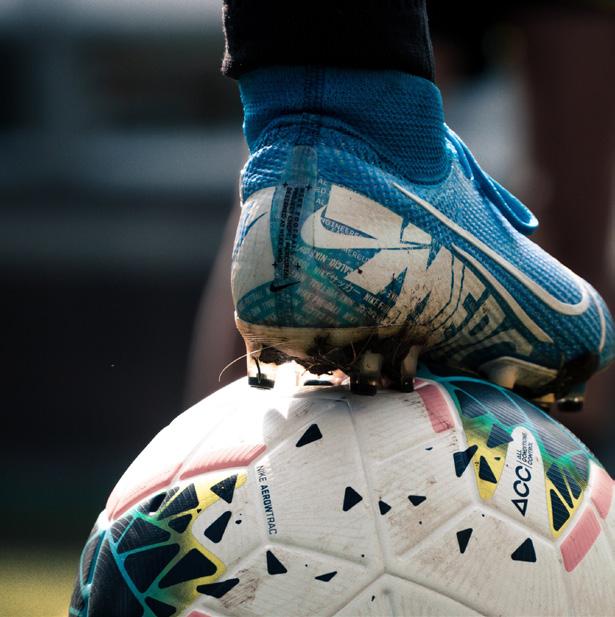


You might do a week’s placement within a primary school, planning and running different sports activities for younger children, or do a week of work experience at a professional sports club, understanding what goes into the running and management of a professional team. Professional sports don’t just stop on the court or field either, there’s travel, accommodation, training schedules, physio, uniform and many other factors which go into making a team successful.
Have a think about what part of the industry you will be wanting to work in, and whether there is a particular sport you’d like to gain more knowledge of. As there is no set format for sport work experience, what you will gain from placements largely depends where you end up spending the week! Regardless of the exact placement, you should expect to spend a week gaining more in-depth knowledge of the industry and how it works, as well as having the opportunity to gain useful skills which will help you in your future career.
Depending on the degree, A-levels in biology, physics, chemistry or maths are usually required. Other beneficial subjects include physical education or psychology. Since we are talking about such a wide range of courses, it’s best to check entry requirements for a specific course. No matter which course you are interested in, a personal statement that demonstrates your passion for the subject and the effort you have made to gain experience will be a huge factor in your application being accepted.

One of the best things about teaching is that it’s a career that can take you anywhere in the world, and you are pretty much guaranteed a job for life. Schools will always need teachers! You will need to be a skilled communicator, be patient and able to explain what you know in a way that makes it easy to understand. The best teachers do this with passion, and pass on their love of a subject to their students. It can be a demanding job, but it can also be incredibly rewarding. Work experience in teaching is usually pretty simple – most students go to primary schools to help out in a classroom, working with younger pupils and offering support to the class teacher. You might be asked to help certain students who are struggling with a particular topic, you might be asked to plan a simple activity to support a lesson, or you may spend time reading with younger children. You will get to see teaching from the other side – from a teacher’s point of view, and learn more about what goes into a teaching career.
You will need a degree to teach, but you can choose to either do a teaching or education degree right from the start, or complete a degree in your chosen subject, followed by a PGCE which will lead to qualified teacher status. You will need at least five GCSEs with good grades in English, maths and science, and if you want to specialise in a particular subject, then having a good A-Level in that subject certainly helps!
You should also think about ways you can display empathy, communication skills, critical thinking, and writing and presenting skills – these are skills you can learn from work experience placements and a good placement will help you demonstrate in your application that you’ve tried and tested these skills in a classroom.
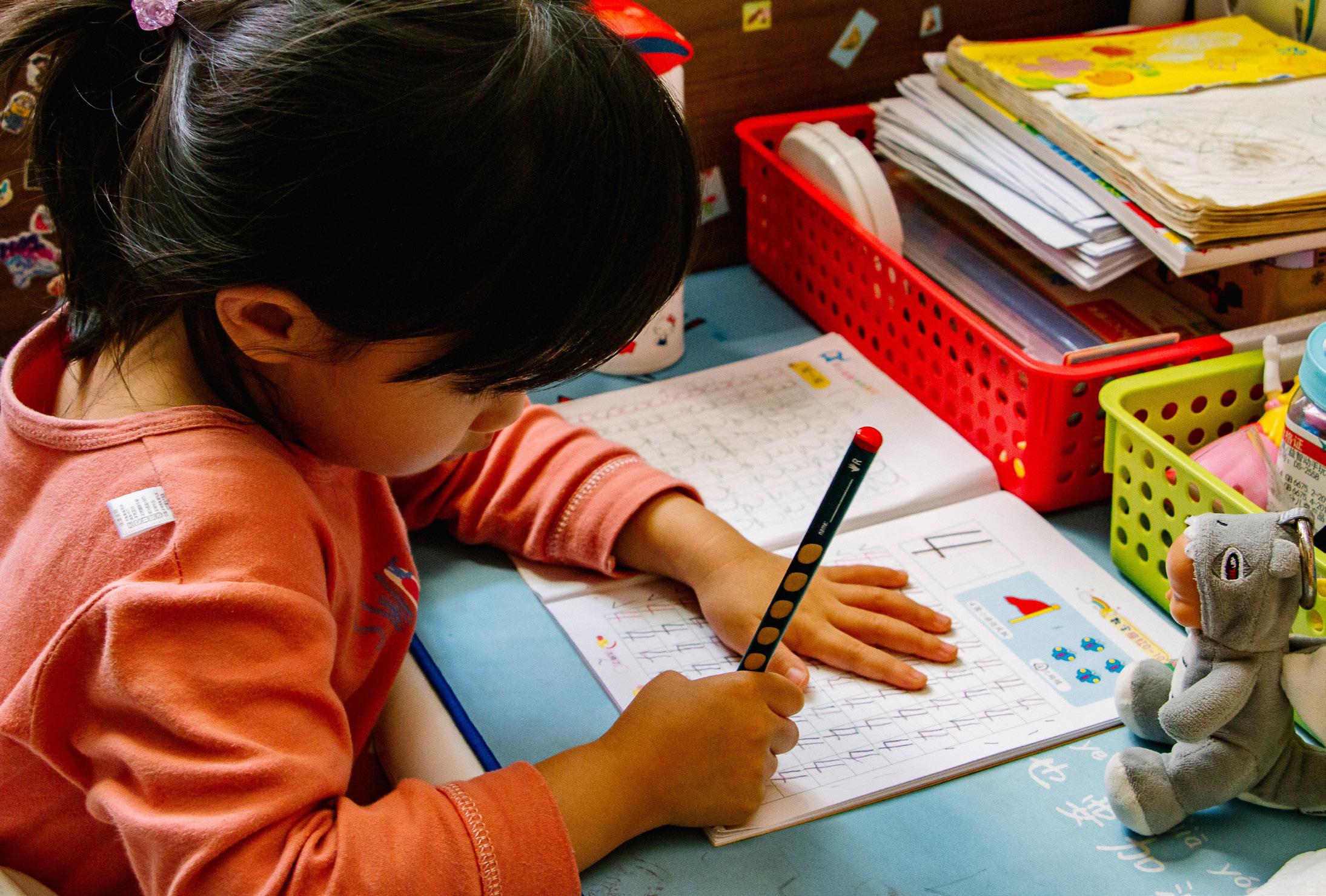

Travel and tourism sounds like the perfect career if you want to see the world! And for some, it can be, but keep in mind that most of the industry is behind the scenes, planning, costing, and looking at the logistics of trips. There is a lot of analytical work that goes into the travel industry, and while that may not sound as glamourous as travelling the world, it does mean that there is a role for most people within the industry. Have you ever considered that the travel industry needs software developers? Or accountants? Marketing and PR? These are all parts of the industry!
If you are looking to work more within product, operations or trip development, then you will need a few things: excellent communication skills, a good knowledge of the world and different destinations, a head for numbers and analysing data and market trends, and the ability to adapt constantly to an ever-changing environment.
Placements within travel and tourism can be working with travel agencies on the front line – helping sell trips to customers and gaining valuable insight into what the consumer wants (vital if you want to plan trips!), working within customer service answering client emails, helping with admin as part of the booking process and pre-travel or helping with marketing tasks like researching images which can be used, or cataloguing resources.
You might be working behind the scenes helping put together information for different destinations, researching the best bus companies to get from Argentina to Chile, or helping figure out how much fruit you need to order for a sailing trip around the Greek islands! These are all parts of the industry which are often overlooked, but they all contribute to the perfect trip, and when you get the details right the end result is immensely satisfying!

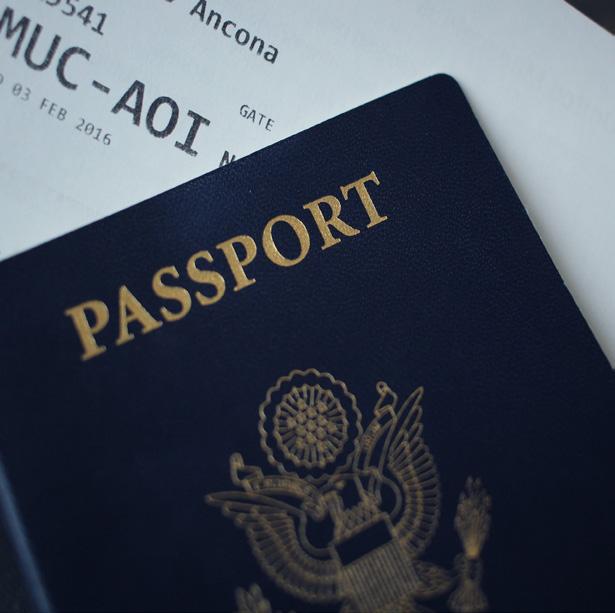

Entry requirements for most hospitality, travel and tourism courses include BBC at A-Level, and business, geography, and languages are considered helpful subjects to study before applying. It helps to have an interest in world economics and sustainability, with more and more companies choosing to focus on sustainable travel. Global planning and logistics can be complex, and understanding the costs and fees associated with these logistics can be easier with some solid working knowledge of maths.
The travel and tourism industry is a great option for people who value experiences and who want to work in an ever-changing sector, though it can also be hugely competitive, so work experience placements with the right companies can help you get a foot in the door. In the travel industry, it’s about who you know as much as it is what you know!
Networking from work experience and participation in professional workshops, talks and events can be hugely valuable when you are just starting out in your career.
Sound like something you’d like to learn more about? Consider a work experience placement in travel and tourism!
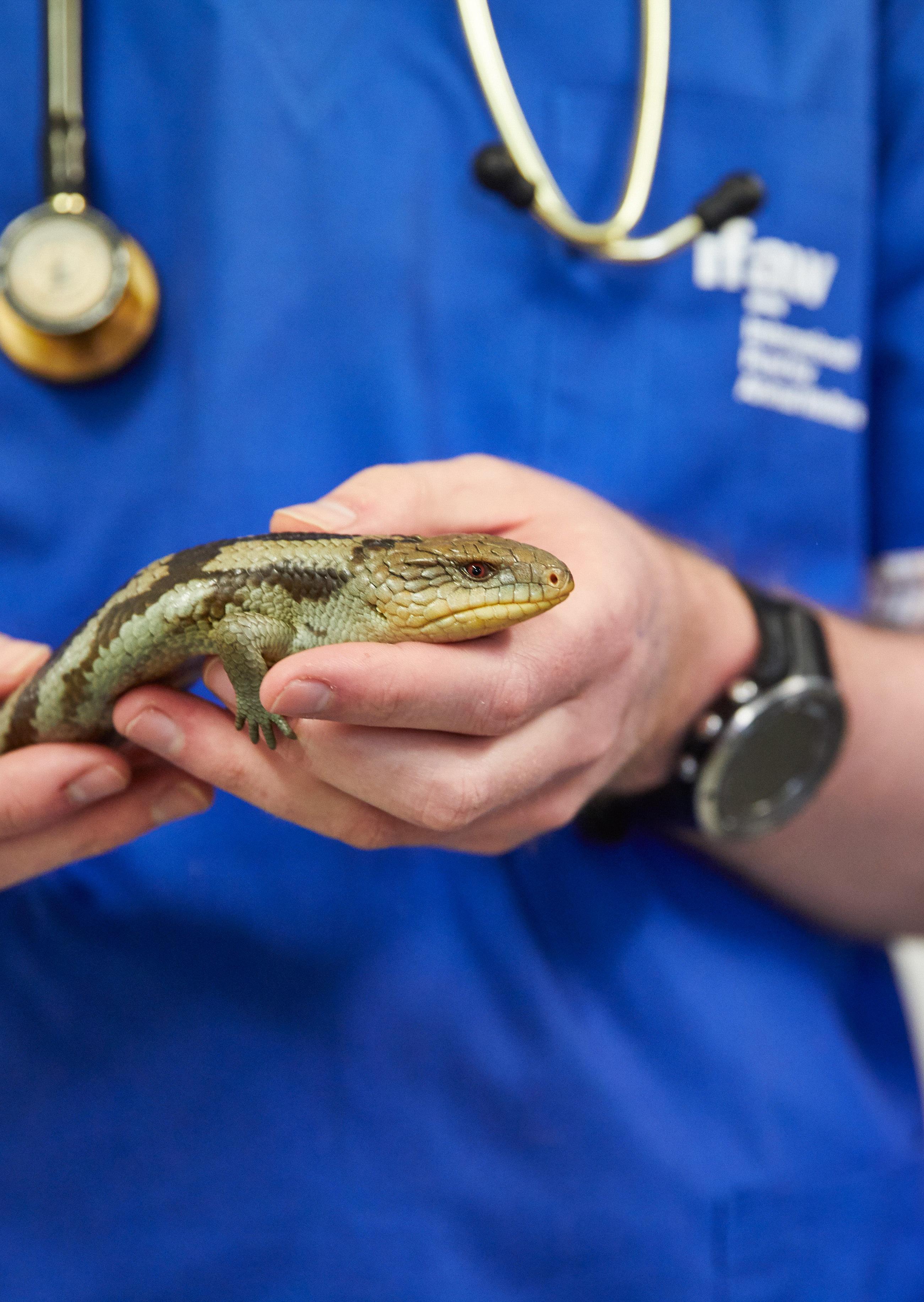

Veterinary medicine is an incredibly rewarding, but also challenging career path. It is a highly competitive field, and places on degree courses are extremely sought after. This shouldn’t discourage you though - you will need resilience and drive to be a vet, and that starts now! Degree courses generally take five or six years to complete and they involve studying a wide range of topics.
Let’s start with some basics.
You will need three strong A-levels to be considered for a veterinary medicine degree, and generally you should be aiming for AAA grades. Some universities will accept a lower grade in a third subject, but you will need at least an A in biology and chemistry, so be realistic about whether this is something you can achieve. It is non-negotiable to be taking biology and chemistry at A-level. You will also need GCSEs in science, English and maths, at 9 - 5 grade.
The selection process for veterinary medicine courses is extremely competitive, and you will be expected not only to submit a very strong personal statement, but you will need to perform well in interviews, and additional screening tests.
The University of Surrey is one of the best known for offering veterinary medicine degrees, and they boast fantastic facilities and accommodation. They screen candidates using an online questionnaire to check your knowledge about the profession and check that you have the motivation and insight to take on the degree.
Your personal statement should include details of work experience placements you’ve undertaken, and while for most courses work experience is something that’s nice to have, for most veterinary medicine courses it’s a requirement.
You will be expected to be able to prove that you have completed several weeks of work experience - usually a minimum of two weeks working directly with animals. This can be on a farm, in a zoo, in kennels, stables, or rescue centres, but it must be hands on experience. Best practice is to aim for 140+ hours of work experience, and you should be prepared to show evidence of the variety of placements you have completed.
Consider which area of veterinary medicine you might want to work in – for example if you dream of working with exotic animals, then you should be looking for work experience in zoos and sanctuaries, rather than at farms.
You will also need to have spent at least one week working in a veterinary practice.
Some candidates for veterinary science also look abroad for placements – wildlife rescue charities and conservation specialists around the globe often take on work experience students looking to study veterinary medicine. Remember that things like this will help you stand out! Luckily this is something we can help with.

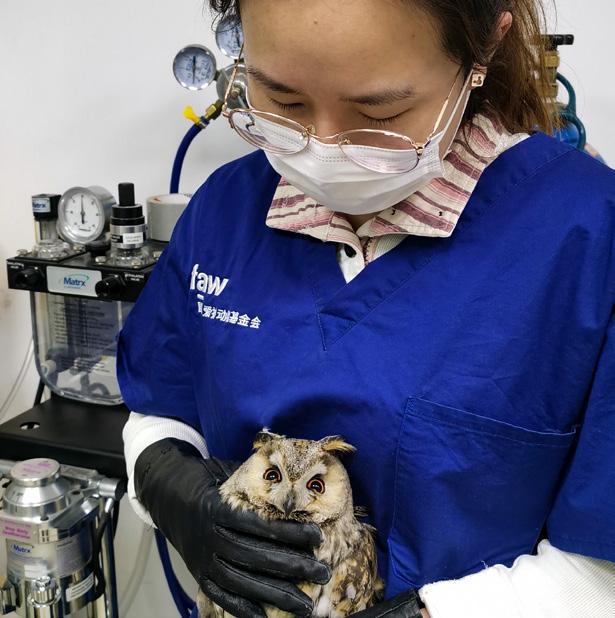
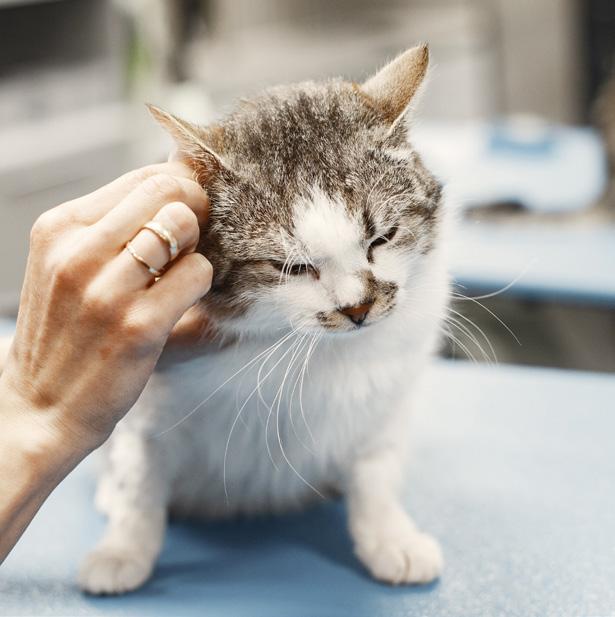
You will need to demonstrate that you are well informed and passionate about veterinary science as a subject, and that you understand the path you will be taking to the subject as a career. Things you might want to do some reading on, are the topics you will be studying. They may help you to understand the career path you are considering.
You will learn through the course of your degree to meet the diverse needs of exotic and wildlife species, as well as companion, production, equine and laboratory animals. You will learn anaesthesia, animal husbandry, about infectious diseases, pathology, dissection, perform a necropsy and complete clinical intramural rotations to develop a full awareness of working as a veterinary professional in a clinical environment.
All of these skills will eventually enable you to register as a veterinary surgeon.

“THE BEST DOCTOR IN THE WORLD IS THE VETERINARIAN. THEY CAN’T ASK THEIR PATIENTS WHAT IS THE MATTER – THEY’VE GOT TO JUST KNOW.” – WILL ROGERS
It may be that you are reading this and wondering if this path is the right one for you. It’s a lot of studying and a big commitment! Keep in mind that there are other similar fields too. Veterinary nursing is a three-year degree, with slightly less competitive entry requirements. You will still be expected to study sciences at A-level, but often you will find entry requirements are closer to B and C grades making this more attainable for some. You will learn a lot of the same skills, and study the same kind of topics, but the degree will allow you to register as a veterinary nurse rather than a surgeon.
You might also want to consider something like Zoology – there is a lot to learn here too! If you are passionate about protecting natural habitats, working with the animal kingdom, but would prefer more of a focus on zoological science, biological processes, animal behaviour and ecosystems, then this might be for you. You will learn in labs and in the field, and often spend time on international placements as part of your degree, sometimes as a full industry placement year in between your second and third years.
All of these options are best explored with practical work experience. You will never know if it’s the right field for you unless you give it a go – the reality of the job can sometimes differ from the idea of the job, so getting hands-on experience can often help guide you in the right direction!
Virtual work experience can be a valuable addition to any in person work experience placement. We have listed some virtual work experience websites and resources below, so you can take a look.
Springpod - https://www.springpod.com/
“We partner with outstanding universities and employers to create interactive, experiential learning programmes which empower the next generation and enable them to take their future into their own hands by giving them equal access to opportunity. From work experience to university course taster experiences, the Springpod platform is the destination for young people to explore, interact and learn about the world of work and university before they apply.”
The Forage – https://www.theforage.com/
“Forage is the bridge between education and career success. Our job simulations build real-life skills for real-life roles, offering a window into the company and a preview of their day-to-day. Job sims are 100% free, open access and self-paced.”
Investin - https://investin.org/
“We offer students a once-in-a-lifetime experience of their dream career before they’ve even left school, with exclusive insider advice on how to succeed. We help students to choose their future with confidence and fully maximise their potential. Industry-leading professionals design every one of our experiences, guiding students through authentic career simulations, interactive activities, inspiring site visits, personalised career guidance and networking opportunities.”
Speakers for Schools - https://www.speakersforschools.org/work-experience-opportunities/
“Young people can take part in in-person, virtual, or hybrid placements with leading employers like Virgin, Boots, Bentley Motors, the NHS, and hundreds more to develop their employability skills and knowledge of the world of work.”
There are many other online courses which we can share with you if this is something you are interested in. Please just have a chat to the student guidance team and we can point you in the right direction!
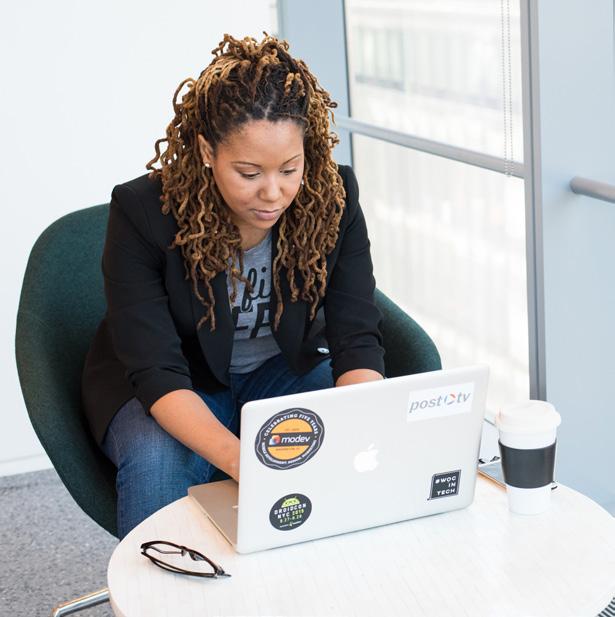


Students on work experience placements are covered by existing Employers’ Liability Insurance and Public Liability Insurance. While there is no need for separate insurance to cover work experience students, employers are advised to let their companies know about the agreement and dates they will be hosting students.
If a student or their family members are organising work experience placements, they m ust also ensure that the employers’ liability insurance is in place, except in specific cases where the employer is exempt. They should ask for a copy of the insurance policy, or at least the section relating to young people under 18. A copy of this will need to be sent to the school for our records.
The following organisations are exempt from Employers’ Liability Insurance:
• Government departments, local authorities, police authorities
• Health services – NHS trusts, primary care trusts
• Family businesses only employing close relatives and sole traders
• Publicly funded organisations like magistrates’ courts which are granted indemnity
If the work experience placement involves travel in any vehicle belonging to the placement provider or a subcontractor, the provider must be able to give evidence that the vehicle is properly insured. This needs to be fully comprehensive insurance cover that includes business use.
If you are arranging work experience with anyone who is self-employed, you are welcome to get in touch to discuss what insurance is necessary.

